“Good. Nice to see an older guy have a hobby . . . What’s she doing now?”
“Finishing the pizza,” Lucas said. “She’s still staring, though. She looks really tense. She’s fumbling in her purse . . .” Lucas backed his chair up a few inches, so he could clear his gun if need be. “She’s got a . . .”
“What?”
“. . . ChapStick.”
“ChapStick?”
“Yeah, you know, for chapped lips,” Lucas said.
Virgil leaned back in his chair. “Wait: I gotta change my underwear for a ChapStick?”
That evening, Lucas’s wife, Weather, took their two children-at-home to the Mall of America. When they got home, carrying shopping bags and wearing pleased expressions, Lucas had spread the FBI files around the den and was looking at U.S. Senator Christopher Colles of Florida on his iMac screen, a FaceTime call.
“My daughter’s husband is a commander in the Coast Guard and these boys were like family to them,” Colles said. “Elmer and Porter say you’re my best shot.” Elmer was Elmer Henderson, Porter was Porter Smalls, both U.S. senators from Minnesota.
“I’ve looked at the files and I’m interested, Senator,” Lucas said. “Would you know the U.S. attorney for the Southern District of Florida?”
“Sure do, she’s one of my crew. Anna Rubio. Can she help you out?”
“When I go in on something like this, maybe with a couple other marshals, we don’t have the investigative abilities of the FBI . . . the research abilities, the surveillance teams, the personnel. What we do is we go in and kick things over, make some offers that some bad people can’t refuse. The FBI doesn’t do that. We won’t do anything illegal, you understand, but I might need backup from the U.S. attorney. Or an assistant U.S. attorney, who carries the water for the boss.”
“Give me an example of what you’re talking about.”
“Maybe a get-out-of-jail card for a relative,” Lucas said. “Not for murder, but for like a mid-level drug deal. Maybe somebody’s got two more years to serve on a ten-year sentence, they get an early parole. Maybe we catch somebody with an ounce of cocaine and instead of waving him off, the U.S. attorney talks tough to him and his attorney . . .”
“Sounds fine to me,” Colles said. “I’ll call up Anna and tell her you’ll be in touch. Give me a call once in a while and tell me how you’re doing.”
“I will do that,” Lucas said.
When he got off the call, he saw Weather standing in the doorway with crossed arms. “So you’re going?”
“Looks like it. Are you going to give me a hard time?”
“No. It’s what you do, but you’ve got to be here for Thanksgiving,” she said. “Letty’s coming and there’ll be some parties that weekend. You should plan to be back that whole Thanksgiving week.” Letty was their adult adoptive daughter, about to graduate from Stanford University with a master’s degree in economics.
“I can do that,” Lucas said. Thanksgiving was almost a month away. “By then I should have a handle on the situation.”
After talking with Weather, Lucas called Bob Matees, a marshal with the service’s Special Operations Group.
“Taken you a while to get back,” Bob said. “We sent that stuff to you a month ago. More than a month.”
“Homeland Security and the Justice Department have been arm wrestling over jurisdiction and decided to split the difference,” Lucas said. “We’re allowed to monitor and assist the investigation, but the FBI keeps the lead.”
Bob said, “I don’t know what that means.”
“It means we’re in, if we want to be. We might have to go to some meetings, but basically, we’ll be on our own.”
“You and me?”
“And Rae.”
“Rae’s out for the time being,” Bob said. “Her mom was diagnosed with breast cancer last week and Rae’s taken leave and gone home. She’ll be there until the docs figure out a treatment program.”
“Her mom gonna die?” Lucas asked.
“That’s not what the docs are saying, but it’s serious. The treatment is gonna be tough. She’s at MD Anderson in Houston, so that’s good.”
“All right. Let’s stay in touch with her,” Lucas said. “I’m thinking we get down to Fort Lauderdale in the next few days . . . the task force is working out of a hotel off I-95.”
“How many guys?” Bob asked.
“A dozen FBI agents, representatives from the Miami-Dade cops, Broward sheriff’s department, Fort Lauderdale cops, and Homeland Security—Homeland Security is the Coast Guard. We’ll be the last guys through the door.”
“Ah, man.” Bob was pre-discouraged.
“It is what it is. You want in?” Lucas asked.
“Of course. I’m already packing my Jockey shorts.”
“Girlfriend’s okay with it?”
“I told her it might be happening,” Bob said. “She worries, but she knows what’s what.”
“I’ve got to do some more diplomacy here, but Weather’s on board. I’ll talk to Russell and get your airline tickets going.”
“See you in Lauderdale, man.”
The next morning, a woman named Elsie M. Sweat called from Miami and introduced herself as an assistant U.S. attorney. “I’ve been briefed by Anna and Senator Colles’s assistant. We won’t do anything . . . ethically . . . challenging, but we can help you in your discussions with possible informants.”
“That sounds fine,” Lucas said.
“When do you expect to start?” she asked.
“Monday. I’m not sure we’ll need your help, but it’s a possibility. I wanted to have it lined up in advance.”
“We’re here. This Coast Guard thing has been a constant irritant and the FBI doesn’t seem to be making measurable progress,” Sweat said. “We’d love to get rid of the whole problem—so good luck and keep your asses down.”
“We’ll do that.”
Keep your asses down.
Lucas had been told that by other cops, and had even used the phrase himself a few times, but had never been told that by a prosecutor. Maybe there was something about the culture of South Florida that would make the reminder relevant?
“I guess we’ll find out,” he said aloud, that night in bed, in the dark.
Weather was nearly asleep: “What?”
“Just . . . ruminating.”
CHAPTER
THREE
Lucas walked out of the Fort Lauderdale airport’s Terminal Three into a sweaty night that smelled of ocean, even though the airport was a couple of miles from salt water.
He got lost trying to find a shuttle bus ride to Terminal One, where the car rental services were located. He finally walked there, cutting across a parking structure, dragging his roller bag. He rented a Nissan Pathfinder, drove north up I-95 and checked into the TRYP Hotel, with a room overlooking a complex of on- and off-ramps.
Bob was already at the hotel and when Lucas called his room, Bob said, “I’ve spotted what looks like a decent seafood restaurant that we can walk to. From the satellite photo, it looks like they’ll have a nice view of a marina.”
“Give me a half hour. I want to wash the airplane off and knock on the task force leader’s door and say hello . . .”
Lucas spent five minutes in the shower, pulled on jeans, a T-shirt, and a sport coat, then went up a floor and knocked on Dale Weaver’s door. They’d talked on the phone and Weaver seemed like a congenial guy, for an FBI supervisory agent, anyway, and Lucas had told him that he’d stop up when he got to the hotel.
Weaver came to the door, a stocky man with a square face, lined by years and maybe tobacco, balding, showing white in what was left of his originally reddish hair. He was wearing a T-shirt and gray sweatpants. The run-up to Monday Night Football was playing on a TV behind him. He smiled and said, “Davenport—you look just like your picture on the internet.”
Читать дальше
![Джон Сэндфорд Ocean Prey [calibre] обложка книги](/books/384313/dzhon-sendford-ocean-prey-calibre-cover.webp)
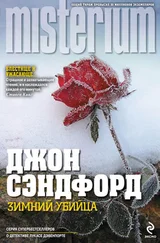


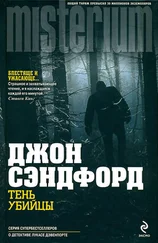
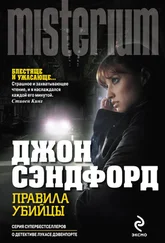
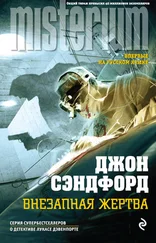
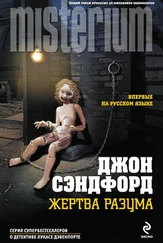



![Джон Ирвинг - Viename asmenyje [calibre]](/books/384315/dzhon-irving-viename-asmenyje-calibre-thumb.webp)
![Джон Ирвинг - Vandens metodas [calibre]](/books/384316/dzhon-irving-vandens-metodas-calibre-thumb.webp)